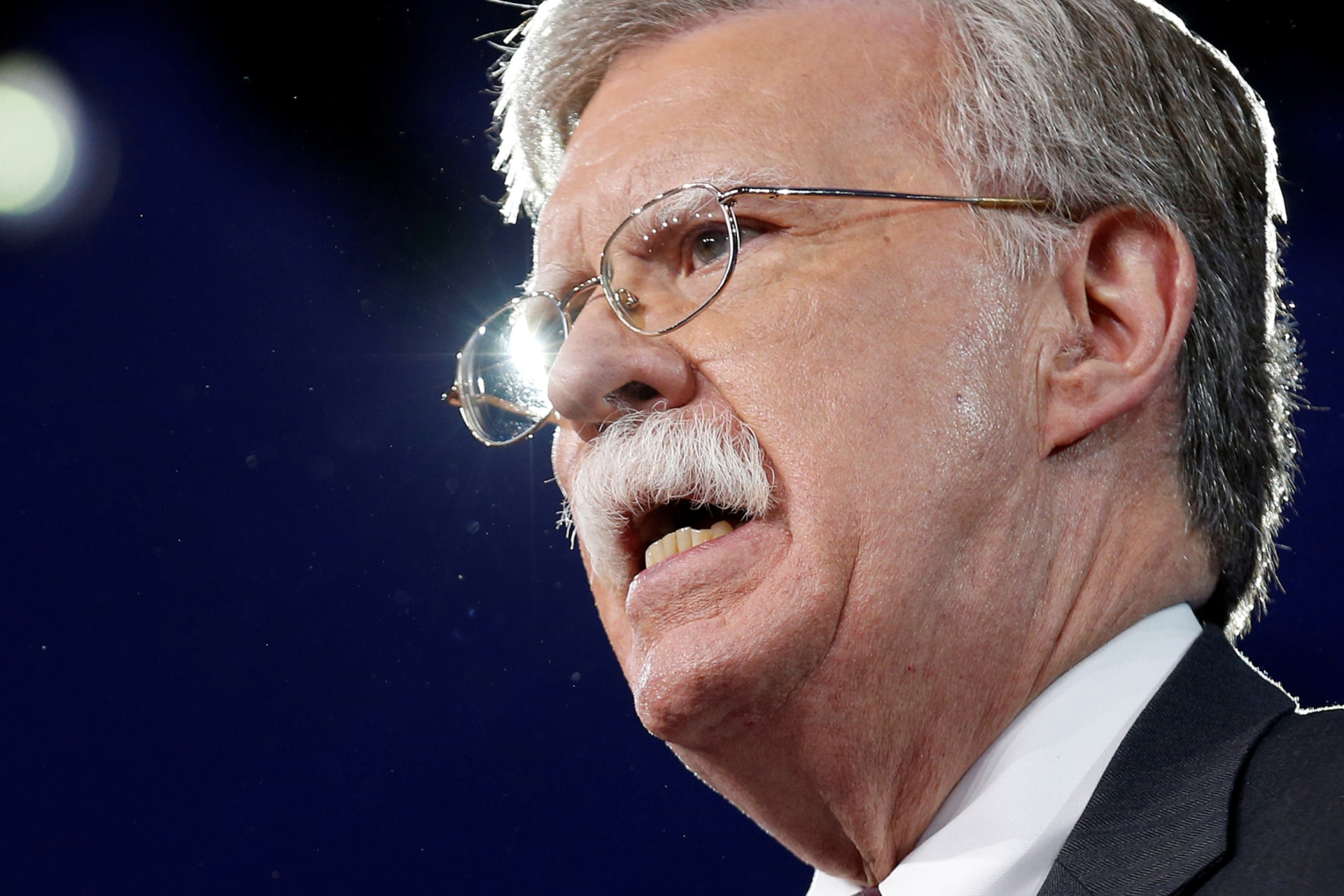John Bolton, Sovereignty Warrior
The president has selected the nation’s premier champion of a narrow, defensive, and ultimately self-defeating approach to the U.S. role in the world.

By experts and staff
- Published
By
- Stewart M. PatrickJames H. Binger Senior Fellow in Global Governance and Director of the International Institutions and Global Governance Program
President Trump’s appointment of firebrand John Bolton as National Security Advisor marks the definitive triumph of the “nationalists” over the “globalists” in his administration. At the heart of this dispute is how to define and advance American sovereignty. In Bolton, the president has selected the nation’s premier champion of a narrow, defensive, and ultimately self-defeating approach to the U.S. role in the world.
Bolton’s crimped worldview is no secret. As a senior official in both Bush administrations and from his perch at the American Enterprise Institute, Bolton has warned that U.S. Constitutional independence is endangered and U.S. freedom of action constrained by international law, multilateral organizations, and global treaties. This was the leitmotif of Bolton’s controversial stint as U.S. ambassador to the UN (2005-06), which he chronicled in a tendentious memoir tellingly titled Surrender is Not an Option: Defending America at the United Nations and Abroad.
Bolton perceives the United States as beset by an unholy alliance of anti-American governments, left-wing U.S. academics and lawyers, progressive NGOs, and international bureaucrats. They are determined, he believes, to subordinate the republic to “supranational” organizations that lack democratic provenance, by riding roughshod over the popular sovereignty that should be the basis for American self-government.
But for Bolton and his fellow travelers, the biggest bugbear is the European Union—an unnatural agglomeration of once-proud nation states that have transferred their independence and rights to Eurocrats in Brussels. His nightmare scenario is the inexorable emergence of a “global” union in which the United States too would lose its liberty. This explains his inveterate skepticism of multilateral cooperation and opposition to multilateral treaties, particularly those related to arms control.
More recently, Bolton has taken aim at the World Trade Organization (WTO). Last year he advocated ignoring the WTO’s dispute resolution mechanism, so the United States could retaliate against its trading partners as it saw fit. (Donald Trump, whose recent actions threaten to destroy the WTO, seems to agree). At the root of Bolton’s recklessness is his oft-stated conviction that international law is not “law” but merely political obligations to discard as expediency dictates.
Bolton’s sovereigntist critique of internationalism is misguided and dangerous. It reflects unwarranted anxiety that the U.S. Constitution is vulnerable to global legal trends. And it ignores both the heavy burdens and ultimate futility going it alone in a globalized world.
To make an obvious point: The U.S. decision to ratify a treaty or to join an international body does not undermine or diminish the nation’s Constitution. On the contrary, it is an expression of popular sovereignty, since it reflects the will of the people through their elected representatives.
To make another obvious point: Nearly all America’s multilateral commitments are horizontal agreements negotiated among sovereign states. They are not hierarchical arrangements that subordinate the United States to supranational authorities—in the manner that, say, EU institutions can supersede the domestic arrangements of member states. This difference is fundamental. Regardless of whether Brexit is wise or wrong-headed, those who voted to “leave” had a point: Britain had ceded sovereign authorities to the EU. The United States has done nothing of the sort—and never will.
At the same time, today’s world requires the United States to consider trade-offs between two other dimensions of its sovereignty: autonomy and influence. Beyond their constitutional anxieties, Bolton and fellow “sovereigntists” warn that the hidden purpose of formal multilateral bodies is to allow the world’s Lilliputians to constrain an American Gulliver. Accordingly, the United States would be better served to pursue its goals through unilateralism, bilateralism, or “mini-lateral” coalitions of the willing.
At the State Department, Bolton proudly spearheaded one such informal coalition arrangement, the Proliferation Security Initiative (PSI). Its avowed purpose was to help like-minded countries interdict shipments of weapons of mass destruction and related technologies—while preserving maximal U.S. freedom of action.
But insisting on absolute U.S. autonomy and flexibility is ultimately counterproductive. To achieve its goals and shape its destiny in a globalized world, the United States needs more than unilateralism, one-on-one deals, and flexible coalitions. It needs formal organizations and treaty obligations. There is no unilateral, bilateral, or mini-lateral answer to terrorism, nuclear weapons, climate change, pandemic disease, or global financial instability. Dealing with these problems requires formal bodies and agreements, from the International Atomic Energy Agency to the World Health Organization to the International Monetary Fund.
Like Bolton, Donald Trump loves to play the “sovereignty” card. The president mentioned the word twenty-one times in his maiden speech to the UN General Assembly in September. And he has invoked it to justify controversial policies ranging from his withdrawal from the Paris Climate Agreement to his proposed cuts in UN funding to his construction of a “big, beautiful wall” along the Mexican border.
Such rhetoric has obvious appeal, given the strong emotions it elicits from Americans, who are blessed to inhabit the first modern republic founded upon popular sovereignty. For demagogues like Trump and Bolton, merely suggesting that U.S. “sovereignty” is at risk short-circuits more sober discussions about America’s stakes in a rule-bound international system.
The genius of America’s post-1945 leaders was to embed U.S. power in international institutions within which other countries might benefit—and within which the United States could seek political and material support for its purposes. The White House is sorely lacking in such genius today, notwithstanding the president’s protestations to the contrary.